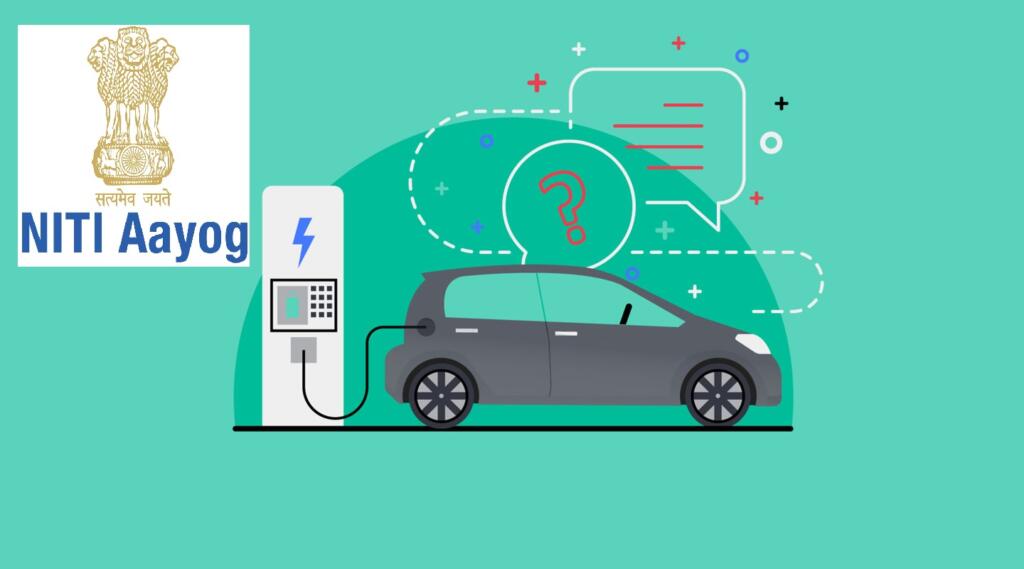Ever Since, PM Modi promised to the world in 2015 that India will be leading the onset of Green Energy revolution, our administrative set up has shown an unidirectional commitment towards this mission. Now, Niti Aayog has come up with a proposal to collaborate with RBI, India’s central bank to fast track EV infrastructure in the country.
Niti Aayog wants to bring EVs under PSL
Niti Aayog, the brainchild of Modi government has proposed to include electric vehicles in priority sector lending guidelines of RBI. Central bank issues PSL guidelines in order to ensure that key sectors driving the economy are provided with enough capital infusion by banks.
In its report on EVs with Rocky Mountain Institute (RMI), Niti Aayog said that India has the potential to exponentialise its increasing EV market share. By 2025, Banks and Non Banking Financial companies (NBFCs) can provide total fund of Rs 40,000 crore to EV sector. The funding is expected to skyrocket to 3.7 lakh crore by 2030.
In its report, Niti Aayog has also suggested a method to streamline lending based on five parameters. These parameters are socio-economic potential, livelihood generation potential, scalability, techno-economic viability, and stakeholder acceptability. Additionally, Aayog has suggested electric two-wheeler, three-wheeler, and commercial four-wheeler as three segments to be prioritised for PSL lendings.
Read more: Short on luck, India has no Lithium reserves for the electric vehicle age. But it has a plan
Government-Industry collaboration is need of the hour
The report suggests engaging on multi-ministerial level in order to speed up EV adoption in India. Various suggestions like recognition of EVs as an infrastructure sub-sector by the Ministry of Finance and the incorporation of EVs as a separate reporting category under the RBI have been made by Niti Aayog.
Highlighting the importance of Government-Industry cooperation in EV segment, the report says, “Multiprong solutions such as these are needed not only for EV penetration and businesses, but also for the financial sector and India’s 2070 net-zero target,”
In its report, Aayog has shown ample caution about the misuse of PSL lending. It has asked RBI to ensure that PSL loans are given on incentive based mechanism. That is, only if borrower fulfills his/her promise of previous lending, only then they should be able to avail next installment of their loan. In case they do not fulfill the target, Niti Aayog has suggested penalty mechanism for them as well.
PSL loans has helped various sectors in the past
RBI’s priority sector lending is a binding mandate on banks. Under this, banks have to make sure that 40 percent of total net bank credit in a financial year should be given to key sectors. Currently, main sectors to be availing benefits from PSL are – agriculture, Micro, Small and Medium Enterprises (MSMEs), export credit, education, housing, social infrastructure and renewable energy.
Speaking about the importance of PSL, Amitabh Kant, Niti Aayog CEO said, “RBI’s PSL mandate has a proven track record of improving the supply of formal credit towards areas of national priority. It can provide a strong regulatory incentive for banks and NBFCs to scale their financing to EVs,”
India’s massive stride in EVs
Recently, India has up scaled its adoption of Electric Vehicles. Indian government’s support has played a key role in the promotion of the electric vehicle sector in India. Currently, the Modi government is providing an incentive of Rs 26,058 crore to electric vehicles under PLI scheme. PLI along with other subsidized schemes have resulted in an average customer paying 80 paise for riding 1 kilometre in an electric vehicle. To put it in perspective, a diesel vehicle costs Rs 4 per km for consumers.
Read more: Adani Group will now enter the EV sector in India
Government is also ensuring that the development of EV sector benefits as much Indians as it can. Make-in-India is becoming a key pillar for EV sector. Even foreign companies like BMW are now collaborating with indigenous TVS for electric vehicle production in India.
Read more: A grand EV collaboration between BMW and India’s TVS is a big loss for China
Geopolitical tension between Russia and USA is rising. On the other hand, China is emerging as near death experience for companies already existing there. It’s highly unlike that the above mentioned 3 countries will be chosen by investors for any green energy projects. This provides ample opportunity for India to woo investors looking for safe investment destination for EVs. PSL loans will only enhance our potential.
